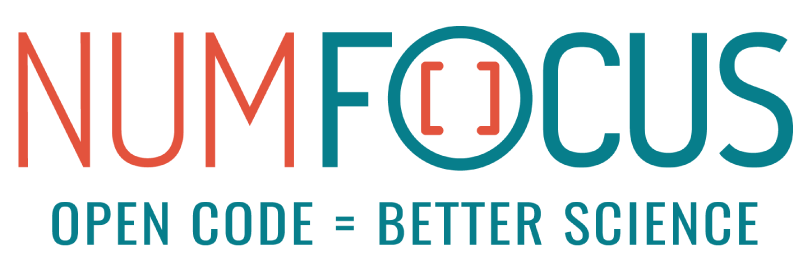|| Basics • Users || Contributors • Development • Maintainers || Sponsors • Made possible by ||
nteract is first and foremost a dynamic tool to give you flexibility when writing code, exploring data, and authoring text to share insights about the data.
Edit code, write prose, and visualize.
- Share documents understood across the Jupyter ecosystem, all in the comfort of a desktop app.
- Explore new ways of working with compute and playing with data.
- Bring the nteract experience to your web-based Jupyter installation with the nteract server extension.
We support Jupyter kernels locally on your system and on remote JupyterHubs via Binder.
If you're here to install the nteract desktop app, visit nteract.io to download a binary and install or visit the releases page. The nteract desktop app ships with a NodeJS kernel by default. If you'd like to use other Jupyter kernels, you will need to install them.
Our current flavor of nteract web runs on top of the Jupyter server. Install it with pip:
pip install nteract_on_jupyter
jupyter serverextension enable nteract_on_jupyter
Now, run jupyter nteract and you're running nteract on the Jupyter web application!
The nteract playground is a web-based application that allows you to write code and execute code in a web-based editor supported by Binder and Jupyter kernels. You can learn more about in the nteract play GitHub repo.
To learn more about using the nteract desktop app, please check out the user guide
The contributors are listed in the contributors page on GitHub.
To learn how to contribute to nteract, head on over to our contributing guide.
This project adheres to the Contributor Covenant code of conduct. By participating, you are expected to uphold this code. Please report unacceptable behavior to [email protected].
Feel free to post issues on GitHub or chat with us in Slack (request an invite) if you need help or have questions. If you have trouble creating an account on Slack, please post an issue on GitHub.
This repository is a monorepo, which basically means that the repository hosts more than one module or application. In our case, we have two main directories:
packages/ -- components used as an individual library
applications/ -- all the user facing applications (i.e. desktop)
The packages directory has the components needed to build new applications,
and the applications has the desktop app and the Jupyter extension.
Why have a monorepo? The monorepo contains many components and packages that can be mixed and remixed to create new applications. The monorepo keeps these elements together so they are easy to discover and use. Another benefit is that the monorepo makes it easy to iterate on applications that share common components. For example, if we update a component, such as the Jupyter message handling, and happen to introduce an issue when making a change to the desktop app, we would notice the issue in tandem.
To get started developing, set up the nteract monorepo.
- Fork this repo
- Clone your fork or this repo
git clone https://github.com/nteract/nteract cdto the directory where youcloned ityarn install
To keep up-to-date with changes to the root nteract/nteract branch:
- Set the root as a remote:
git remote add upstream https://github.com/nteract/nteract.git
When changes are made to the root nteract/nteract, they can then be pulled from the root and merged to your master branch:
git pull upstream masteryarn cleanyarn install
In some cases you'll want to modify an individual base package (i.e. commutable
or transforms) and not rebuild all of the other packages. To target a build of a
specific package, use this command, replacing packageName with the fully qualified name of the package you
want to hack on:
yarn build:only packageName
For example, to hack on the transforms package, use
yarn build:only @nteract/transforms
yarn app:desktop
As you make changes, you will have to close the entire app (CMD-q on macOS or
CNTL-c at the terminal) and then run yarn app:desktop again to see the
changes.
In separate terminals run:
yarn build:desktop:watch
and
yarn spawn
This progressive webpack build will keep rebuilding as you modify the source code. When you open a new notebook, you'll get the fresh, up-to-date copy of the notebook app.
console.log statements in the main Electron process are piped to stdout.
console.log statements in the Electron renderer process go to the
regular Dev Tools console (accessible from the View menu). Set
ELECTRON_ENABLE_LOGGING=1 to pipe renderer console.log to the launching
terminal as well. This is useful for debugging crashes and notebook closing
behaviors.
I upgraded my developer installation and things are broken!
- Try
yarn clean && yarn
I want to debug redux actions and state changes.
- Enable redux-logger by
spawning the application with
yarn spawn:debug.
I keep getting a pop-up asking: Do you want the application "nteract Helper.app" to accept incoming network connections? while developing or using a custom build of nteract on macOS.
-
This is how the the macOS firewall behaves for unsigned apps. On a signed app, the dialog won't show up again after approving it the first time. If you're using a custom build of nteract, run:
sudo codesign --force --deep --sign - /Applications/nteract.appYou will have to do this again every time you rebuild the app.
Work on the nteract notebook is currently sponsored by
We're on a common mission to build a great interactive computing experience. You can help by:
- QAing the desktop application and helping create meaningful bug reports
- Providing support on GitHub issues or the Slack team
- Donating money to nteract, which is a non-profit fiscally sponsored by NumFOCUS
- Contributing your organization's engineering hours to the nteract project
The nteract project was made possible with the support of
If your employer allows you to work on nteract during the day and would like recognition, feel free to add them to this "Made possible by" list.
|| Basics • Users || Contributors • Development • Maintainers || Sponsors • Made possible by ||







